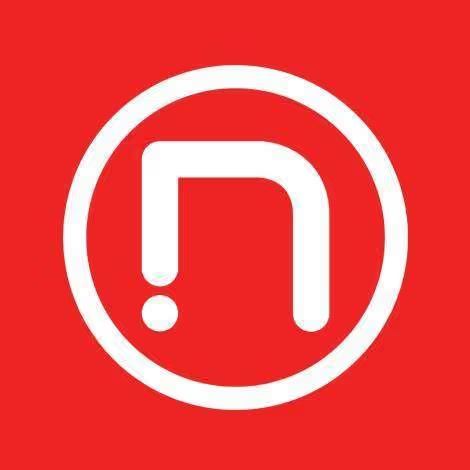EPM
EPM modernises its finance operation by switching to iplicit's true-cloud offering
Jon Anton, Consulting Director at EPM, discusses the ‘trigger’ for thinking about changing systems.
Tell me about EPM Bus Solutions
We are a software, consultancy and audit business, primarily used by the bus industry in the UK, though we do have a number of overseas clients too. Our software is designed to help manage day-to-day operations within each organisation; that may range from driving efficiency to managing back- office functions correctly to improving customer service.
Our consultancy and audit side of the business assists with securing Government grants and helping with reclaims from the Department of Transport. We also deal at a Local Government level too, helping our customer process reclaims for concessionary fares.
Between the two sides to the business, we offer our customers a variety of solutions to optimise their services, whether through analysing and tracking their income from ticket machines, understanding their target audience or identifying grant money and reclaims that aren’t being utilised.
Currently, of all the Bus Service Operators Grant (BSOG) money being paid out to the hundreds of bus companies in the U.K. today, we certify around 90% of it, so we are a very focused niche market player serving the majority of organisations within the industry.
"I know now that no matter how many customers we have, on however many payment plans, the system will automatically alert the finance users to when the next sales invoice is due to be raised."
What are the day-to-day demands that are typically placed upon your finance system?
I think our use of the finance system is pretty standard; I’m not sure if there are any particular impacts in our industry vs. many others. However, it is worth noting that because we have a high volume of transactions, one of the biggest struggles with the previous accounting software was Bank Reconciliation. It was always very time consuming to reconcile the bank with the old way of working and, at month end, we were often a little out and would have to spend so much time working through the detail manually to find the discrepancy or I’d be left having to tidy up the loose ends by putting it through some journal entries.
That all changed with iplicit, of course, and the automated reconciliation has saved us days each month.
Are there any specific challenges for organisations in your sector?
I’m not sure if it is a sector-specific challenge or not but one of the things that we do, that perhaps many other companies don’t, is invoice our customers in advance on a 12 month or quarterly basis – or sometimes something more bespoke. With our software services, our billing could be quite tailored, but always on a recurring periodic basis, whether monthly, quarterly or annually. And historically there have been times when an invoice date has been missed because we were relying on manual reminders to know when to raise invoices for each specific customer. So, the recurring sales invoice function within iplicit helps me sleep at night! I know now that no matter how many customers we have, on however many payment plans, the system will automatically alert the finance users to when the next sales invoice is due to be raised.
"The final two contenders were Netsuite and iplicit and, from a functionality perspective, I don’t think there was much in it – both systems are very capable." - Jon Anton, Consulting Director
What led to your decision to change systems?
I guess the ‘trigger’ for thinking about changing systems was the fact that the server, that our old software was hosted on, was getting to end-of-life and we had to make the decision as to whether or not it should be replaced. We have reduced our dependency upon on-premise servers, in recent years, as we’ve migrated more and more services to the cloud.Also, when we looked at the cost for replacing the tin, we also decided that it was the right time to consider moving our Finance Software from being an application hosted on our own network to a proper cloud service that would future-proof us from having to even buy the hardware to run anything. And, not having to worry about what version we were running or buying upgrades was also a driver for getting away from an on-premise system.
What other systems did you consider?
We looked many other systems including Sage, NetSuite and Wolters Kluwer. Most discussions ended pretty quickly when we couldn’t get straight answers from vendors as to whether their system could actually do what we were asking! I felt as though there wasn’t much hope in being able to establish a long-term, highly-dependant, relationship with a company that couldn’t seem to give a straight answer from the outset. I think, perhaps, some of this was based on their expectation that we would fit our processes around the way their system worked, rather than for their system to fit with what we needed.
The final two contenders were Netsuite and iplicit and, from a functionality perspective, I don’t think there was much in it – both systems are very capable. However, we chose iplicit based upon the first-hand experience we’d had with various staff members, during the consideration phase; above all the other software vendors that we’d spoken with, iplicit stood out to us as the company that would go the extra mile and put the customer first.
What was your key criteria for a new system and why did you choose iplicit over the other systems being considered?
Two things come to mind that were absolutely essential – if we were going to change systems, it had to be a true-cloud offering, not an on-premise system hosted elsewhere. Secondly, the new system had to have a really effective timesheet functionality that was integrated with sales invoicing – this was a very important component to us, given that time-based billing is something that effects virtually every member of the organisation.
As we started the search, we also recognised that expense management and HR related functions were also really enticing additions to a core finance offering.
How have you found the iplicit experience since going live?
It’s been very good; our Office Manager thinks it’s fantastic as the system has saved her a considerable amount of time. The ability to just jump to different areas of the system very quickly, for me, is also very useful as I can almost look at two things at once, which also saves considerable time. I don’t have to keep closing screens and then forget what I was looking at and have to go back to check! It’s very user friendly – even when there were some bits that I’d forgotten since the training sessions, it’s all very intuitive and easy to work out for yourself.On the subject of training, our implementation consultant was Helen and she was fantastic! I know that she’s been really helpful to our Office Manager too, answering a variety of queries and questions at seemingly all hours of the day and night! Helen explained things really clearly; in simple terms for us all to understand – a real help to all of us and a pleasure to work with. We have recently acquired another business and I’m pleased that we will be working with Helen to add a new entity to the system and train more staff.I’ve dealt with a number of staff at iplicit during the implementation process and since going live. They’ve all done a great job at looking after me. Recently, we archived all of our old extracted data and I must say that I’d imagined it to be more of a data dump, but having reviewed it, I have been positively surprised at how easy it is to access whatever I might need.
Related case studies
Want to see iplicit in action?
Book your demo and discover how iplicit can simplify your finance operations, automate manual processes, and give you real-time visibility - wherever you work.










